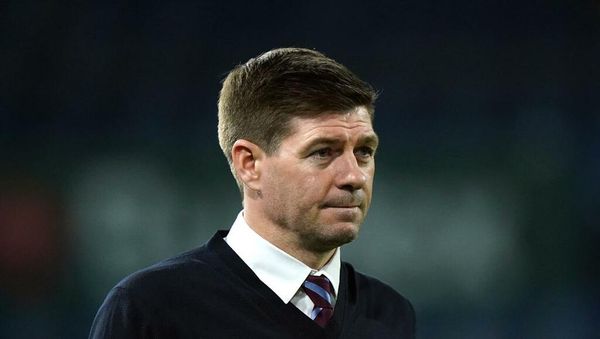
Jesse Marsch is learning the hard way how football can turn in the blink of an eye. At kick-off here, he emerged for his first match in charge of Leeds at Elland Road to a cacophony of noise and support. There was no doubting it: Leeds supporters were backing their new man. Just 90 minutes later, their mood could not have been more different.
Seconds after Calum Chambers had put this result beyond doubt with a wonderful strike to make it 3-0 and ensure it would be six successive league defeats for Leeds, some supporters in the main stand here turned towards the home directors and made their feelings abundantly clear. Seconds later, chants for Marsch’s predecessor, Marcelo Bielsa, were almost deafening. These supporters know what many others do: their team is firmly in a battle to preserve their top-flight status.
The statistics, and indeed the irony surrounding them, make for uncomfortable reading. The last time Leeds lost six successive league games? 2003-04, a season which ended with relegation from the Premier League. This squad are hurtling towards a similar fate and after another chastening performance, it is not an understatement to suggest Sunday’s game against Norwich is nothing other than must-win.
“It is basically a final on Sunday and we have to find a way to get a result in that match,” Marsch said. “We have to continue to stay strong and be calm and be clear in what we try to achieve. I underestimated the stress of the moment from the players’ perspective. I’ve tried to create clarity for the group as to how we want to play but it was clear from the beginning that we lacked confidence and aggression.”
Most worryingly for Leeds, the atmosphere their players have thrived under during Bielsa’s time in charge seemed to have the inverse impact here, with the pressure almost palpable as they slid to another defeat. “I heard a lot about the Elland Road crowd and it was fantastic, and the players want to do well so badly that it brings more pressure on to their shoulders,” Marsch said.
But this result was as much about Aston Villa’s performance as it was Leeds’s. This is now three successive wins and clean sheets for Steven Gerrard’s side, with their attacking triumvirate of Danny Ings, Ollie Watkins and Philippe Coutinho again impressing. Coutinho’s first-half strike gave the visitors a deserved lead by half-time – his shot deflected past Illan Meslier – and they had the better of the chances throughout that first half, meaning it was no surprise when they eventually went ahead.

“I can’t ask for any more from the players about how they went about their work,” Gerrard said. “We’ve done it with control and we thoroughly deserved it. Once we settled in both halves, how we dominated possession is a real plus.” As Gerrard pointed out, Leeds began both halves brightly, and they were buoyed after the restart thanks in part to Joe Gelhardt’s introduction and Patrick Bamford’s long-awaited return from injury.
But despite a couple of half-chances, including a clever ball across goal from Raphinha which narrowly evaded Dan James, Villa rode the storm and struck a telling blow just after the hour mark. Matty Cash, who had already provided the assist for Coutinho’s opener, found himself unmarked at the back post and he waltzed past Junior Firpo before firing beyond Meslier to double Villa’s lead. It completely stunted any momentum Leeds had built and from there, the outcome felt inevitable.
The final 25 minutes were somewhat of a procession and when Chambers’ curling effort sailed past Meslier, the mood inside Elland Road profoundly turned with the chants for Bielsa and the ire hurled towards the directors’ box by Leeds supporters, many of whom were heading for the exits with 17 minutes still remaining. Marsch, who inherited this situation rather than playing a role in its creation, must have felt as though he was rudderless aboard a ship which has all the hallmarks of one that is sinking.
The crumb of comfort many Leeds supporters have held on to for so long is that despite their own form, there are three teams who are potentially worse than themselves.
This night, above all else, underlines how that is a dangerous mindset to take as things stand. This is not quite a job on the scale of Brian Clough succeeding Don Revie in 1974, but the magnitude of the job Marsch faces now must feel enormous.










